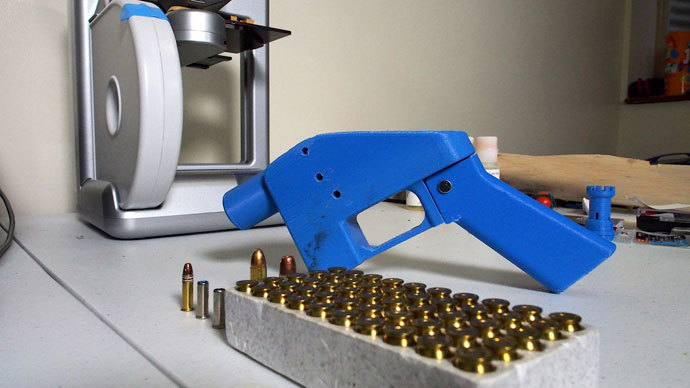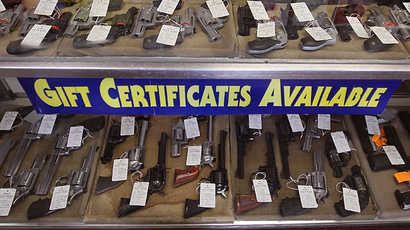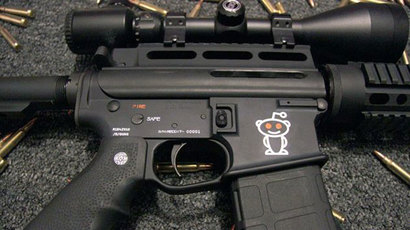California bill aims to regulate 3-D ‘ghost guns’

A state Senator proposed legislation that seeks to thwart the proliferation of undetectable plastic firearms that can be produced using 3-D printers.
The bill, submitted by Sen. Kevin de Leon, would require that
anybody who wants to assemble a homemade firearm undergo
background checks and register their weapons with state
officials.
Today, the legislation seems important as ever, given the
technological changes in the gun industry. Three-dimensional
printing, for example, is a new technology that permits people to
download to a computer the blueprint for a particular firearm,
which can then be produced on a 3D printer without any background
checks.
The ease of manufacturing a gun at home out of material that can
evade metal detectors is a cause for concern among security
officials and lawmakers.
De Leon’s bill is an effort to address the danger from what he
terms "ghost guns" — firearms crafted from plastic that
can get past metal detectors. The measure also seeks to prevent
unregistered firearms falling in the hands of individuals who are
prohibited from owning guns under state law.
"Currently, no one knows they exist until after a crime has
been committed," de Leon told reporters on Monday.
The legislation also would apply to anyone who purchases parts
that can be assembled into a gun.
The US House of Representatives voted in December to extend for
another 10 years the Undetectable Firearms Act, a current law
that prohibits weapons made entirely of plastic because they can
evade metal detectors. De Leon’s bill, however, proposes tougher
requirements on homemade weapons.
Thus, the government plastic guns are required to include a metal
piece. However, since the metal can be removed, the gun could
potentially make it past metal detectors at various public
places.
De Leon’s proposed legislation would require that homemade
firearms contain permanent metal pieces that would set off alarms
when passing through metal detectors.
Bill SB808 would allow California residents to manufacture
homemade firearms, but only after they submit an application to
the Justice Department for a background check. The applicant, if
cleared by the check, would then receive a serial number that
would have to be permanently attached to the weapon within 24
hours of its production.
National Rifle Association spokeswoman Catherine Mortensen said
the organization, which ranks as the most powerful lobbying group
in the US, is against any expansion of the law at either the
federal or state level.
Brian Jenkins, former adviser to the National Commission on
Terrorism, expressed doubts that new 3D technology will lead to a
surge of undetectable weapons, due to the fact that it is much
cheaper to buy a standard firearm through a supplier. At the same
time, airport body scanners can detect a gun even if it is
constructed from plastic.
"As we come up with new types of technology, it creates new
vulnerabilities," AP reported Jenkins, who has written on
terrorism, as saying. "What you have then is an ongoing
dynamic between bad guys and good guys."














